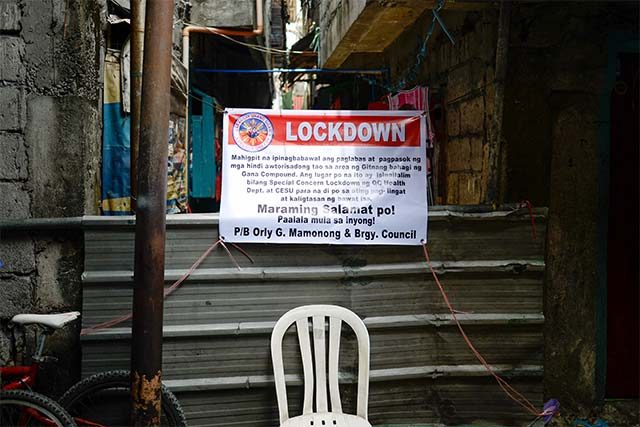
Vice President Leni Robredo stated that granular lockdowns should come with ramped-up testing, contact tracing and isolation.
The granular lockdown will be “pilot tested” in Metro Manila, which has the highest concentration of COVID-19 cases, as approved by the Inter-Agency Task Force for the Management of Emerging Infectious Diseases (IATF-EID).
Its implementation will start on September 8.
Presidential spokesperson Harry Roque did not provide further details about the guidelines for this new policy during the briefing.
“Let’s just say we’re on pilot yet. Tignan natin kung mas may epekto itong pinaigting nating localized lockdowns…If it proves to be more successful, we’ll implement it,” Roque said.
The national government is set to placed National Capital Region and other provinces under general community quarantine, the most relaxed lockdown phase, on September 8 until 30.
This is different from the GCQ “with heightened restrictions” that was previously imposed in the region.
The new classifications were also imposed despite the more than 18,000-daily average recorded COVID-19 cases in the past weeks.
More testing, tracing isolation
In her BISErbisyong LENI program last Sunday, Robredo also agreed with implementing localized lockdowns.
However, she noted that this should be aided by enhanced testing, contact tracing and even financial aid for affected residents.
“Okay naman ‘yung granular lockdown pero hindi pwedeng ‘yun lang. Kung magga-granular lockdown tayo, buhusan na natin ng test. Buhusan na natin ng trace. ‘Yung mga naka-lockdown, buhusan na natin ng ayuda para maging effective siya,” Robredo said.
She suggested that businesses that are compliant to health protocols should also give their workers access to health care services, which include COVID-19 vaccines and test kits.
Some Filipinos, particularly some experts, shared a similar view online.
“Granular lockdowns alone without augmentation of testing and contact tracing as well as maximizing vaccination rollouts will have a negligible effect on the decrease in cases,” one doctor wrote.
“Granular lockdowns could be effective if 1) there’s efficient detection (max 3 days) which includes enough testing and effective contact tracing; 2) enough support while being isolated; 3) COVID sheriffs strictly but humanely implement rules; 4) officials will be good role models,” another user said.
Tony Leachon, former adviser of the National Task Force against COVID-19, stated that this approach is no longer effective given the worsening situation in NCR.
“It’s counterintuitive when most of the areas in NCR are in alert level 4. We should not experiment during crisis especially if the numbers are scary to start with. Dig deep for the root cause,” Leachon said.
He also doubted if the government will be able to make it work in the first place.
“I don’t know on how the government can pull off a granular lockdown when we have not been able to do it successfully in the past and when we are not doing well in testing, contact tracings, isolation, quarantine, and vaccinations,” Leachon said.
Worker’s concerns
In an interview with ANC’s Rundown on Monday, the Philippine College of Physicians also raised concerns for the workers who work in another localities in the coming implementation of the localized lockdowns.
“What about the people who will have to go to their workplaces? Whose workplaces may probably not be in the same locality where they are but it will probably in another local government unit? Will the workplaces be able to you know understand their absence?” said Dr. Maricar Limpin, PCP president.
“Because it is open, the industry is open and therefore this actually makes it quite difficult for people to really follow the lockdown. They will still go out because they want to be assured that they will still continue to have work,” she added added.









